snowflake Now • 100%
Registering members is a special responsibility of the tribe, that will become important when we start looking at confederations. It's basically a big family with a roll book.
This is like the Somali 'Abtirsi' or the Chinese 'zupu'
-
The Somali concept of ‘Abtirsi’ refers to a systematically organized lineage-based registry or list of paternal ancestors among Somalis. There is an attempt to digitise them: https://web.archive.org/web/20160305090840/http://abtirsi.com/list.php
-
A zupu (simplified: 族谱; traditional: 族譜) is a Chinese kin register or genealogy book. It contains stories of the kin's origins, male lineage and illustrious members. The updating of one's zupu (simplified: 修族谱; traditional: 修族譜) is a very important responsibility, usually of the eldest person in the extended family, who then hands the responsibility down to the next generation.
Imagine almost every family in the world had this, and it was your basic legal legal identity: serving the purposes of a passport or social security number in Terra.
(Half the purpose of these threads is to learn interesting little cultural tidbits)
snowflake Now • 100%
version 2 live now, take a look☝️
snowflake Now • 100%
About loose marbles
[moving this here to keep the post about governance, not mutual aid]
What if you don't have a tribe? Yeah then you're in trouble, not gonna lie. I never said it was a perfect utopia.
Maybe you were exiled for some a heinous crime like kin-slaying. Maybe you were exiled for a bullshit crime like homosexuality. Maybe your family all died in a shipwreck.
Remember there are two kinds of mutual aid groups: tribes (same blood and culture) and guilds (same profession). See https://hexbear.net/post/596720 .
So now you must join a guild or seek out a tribe that is a good fit and plead for them to adopt you.
If you are strong and useful and a good worker, it's in their interest to say yes. Or maybe you're just good-looking. They may of course say no for some reason.
Most commonly, a tribe will say to an applicant something like: "For a twelvemonth and a day, you work 60 hours a week and get rough food and the smallest cabin. If you fulfill this – and you don't piss anyone off along the way – you then become a full member."
If you can't find a mutual aid group because you're useless or annoying? You could be in real trouble, mate, not gonna lie. Traditional cultures value the Law of Hospitality so you could blow place to place staying 1-3 nights in each depending on their hospitality.
snowflake Now • 100%
It's interesting that you advocate for that. I suppose it shows how material benefits are the most important base.
My culture is getting americanized a lot and I hate it and resist it.
But we're not white so we're not getting "attained whiteness" as you call it.
[Posted September 27th, edited into a better and more succinct version Sept 29th] The world I have been describing – [1](https://hexbear.net/post/536533), [2](https://hexbear.net/post/596720), [3](https://hexbear.net/post/3167507), [4](https://hexbear.net/post/3197821) – is governed by democratic councils. Small councils make local decisions. A bunch of those glom together into something more powerful but less intimate. For some decisions, this can even be global, an anarchist version of the United Nations General Assembly. The [Anarchist FAQ](https://www.anarchistfaq.org/afaq/sectionH.html) says "anarchists have very clear ideas on what to “replace” the state with (namely a federation of communes based on working class associations)." So I had to worldbuild a system of confederated democratic groups. Anarchist governance in my solarpunk world work like this – ## Tribes. A Māori [hapū](https://en.wikipedia.org/wiki/Ng%C4%81puhi#Hap%C5%AB_and_marae). A Greek δῆμος. A Mapuche [lof](https://en.wikipedia.org/wiki/Lof). Think of this as being about 2500 to 4000 people, but don't worry about the number too much, it doesn't affect the democratic arithmetic if the tribe is bigger or smaller. This is the smallest unit with official bureaucratic existence. Some have territory marked by boundary-stones or similar, others are totally nomadic, and some only have a rough idea of their territory. The tribe has its website. It has its code of law. It might also have a totem of some sort that represents it. Maybe it is a standing stone covered in bronze. *Customary Law of the Haya Tribe* states: "Every clan has its totem". Of course, the most famous totems are the wooden poles of the Tlingit and Salish. The English word totem derives from the Algonquian word odoodem [oˈtuːtɛm] meaning "(his) kinship group". 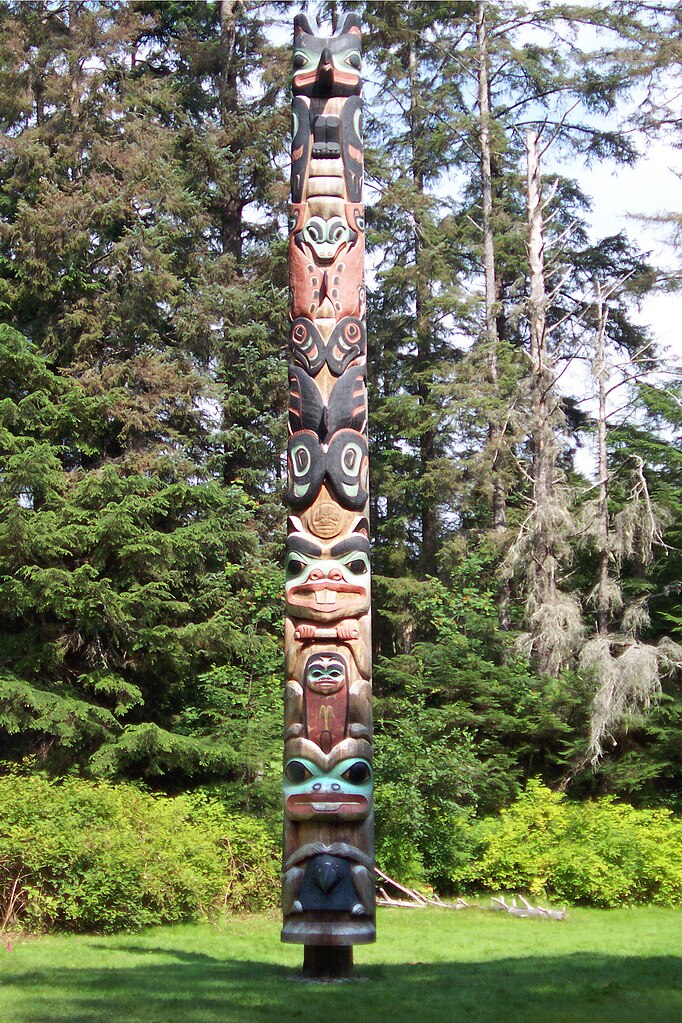 **Registering members is a special responsibility of the tribe, that will become important when we start looking at confederations. It's basically a big family with a roll book.** In Terra, the unit that tracks citizenship is faceless: the country/nation-state that issues passports and accepts or denies citizenship applications. In this world (which I am thinking of naming [Mandala](https://en.wikipedia.org/wiki/Mandala_(political_model))) membership is tracked by something much more like a family. * It must keep track of births, marriages, deaths. * Membership is by birth in >80% of cases * This tribe is what recognises the marriage. Marriage brings one more person into the family. * People can be adopted into the family, like becoming a naturalized citizen of a Terran nation-state. * From the 1990s onwards, all this is tracked digitally. * They must let neighbouring tribes audit their census. If they are accused of inflating their numbers for political power, a larger assembly rules on the matter. If found guilty, they lose all representation for five years. Imagine yourself now. Take a deep breath of unpolluted air through your nostrils. You are wearing the traditional clothing of your ancestors. Your mind thinks in their ancestral tongue. You know that within a 5 minute walk, you have 200 friendly cousins ready to support you. You have your responsibilities to them too. But technology has made life not-too-hard. Imagine it. Kinship rules vary from place to place, as anthropologists have written about. There are tribes all over the world, but no centralised rule for how they're run. They are sovereign and follow their own ways. 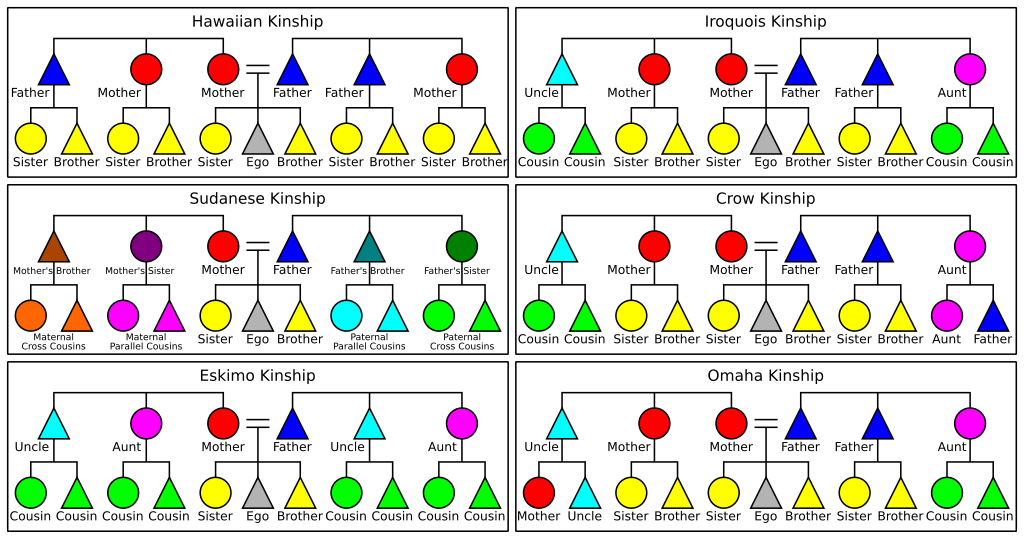 Restorative justice is seen all over the world: Somali *xeer* law that gives a payment called a *mag* to victims. Germanic Law gives a payment called *wergeld*. The tribal assembly has the power to settle disputes among its members through such restorative justice. It can hold court, pass judgement. If the assembly did choose to put someone to death no authority could tell them no: no police or state stands above the tribe. But customary law is normally restorative and the punishment is transfer of property. Kropotkin's *Mutual Aid* discusses this. What about crimes that are not internal to one tribe? We're getting to that. 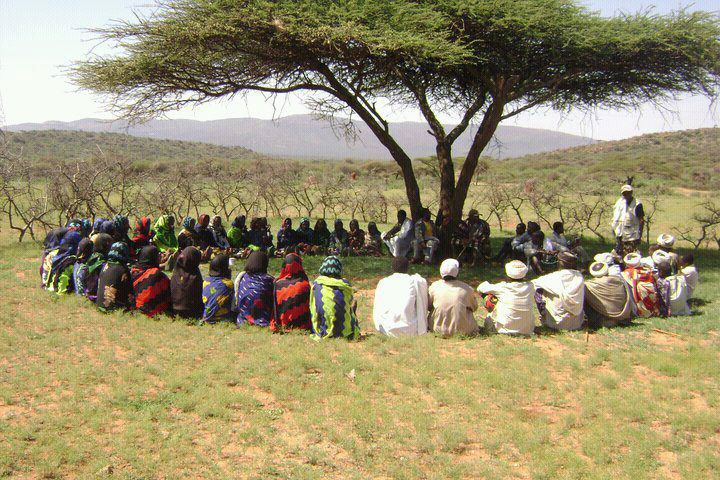 # Confederacies of different sizes, and the decisions they have to make * **Groups of a few tens of thousands up to about 150,000 people** – These correspond to the Māori 'iwi', the Mapuche 'aillarehue', the Greek 'πόλεις'. A group this size should have its own small hospital with a few hundred beds, and that hospital will need to be assigned resources. Library too. If it is by a bay, it will have an open ocean farm. It may manage a lake or a forest as a commons and will control the hunting season or fishing limits of the commons. It will cut deals with various guilds (see https://hexbear.net/post/596720) to supply it with WiFi, with bicycles, etc. in exchange for nice houses and good food. * **Groups of more than about 150,000 people but under a million** – This might be a small city or a good-sized rural region. It will need a more complex, specialised hospital with an emergency ward, so it will have to assign resources to that. It might maintain a shipyard. A city of 750,000 people will have to run urban transport networks, shared bicycle schemes. Will also arrange contracts with guilds. It might arrange a barter-contract with another tribal unit: for example if this tribe lives on the coast, and 50 miles inland there is another tribe; we have too much fish, you lot have too much milk, let's arrange a barter contract for one year. How many kg of fish per litre of milk? That will have to be negotiated. * **Groups of millions of people** – These include nations you have heard of: the Scots, the Serbs, the Danes, the Finns, the Dinka, Bosnians, Armenians, Moldovans. The Nilotic peoples have a total population of 8 million, including the Dinka (2 million), Nuer (1.8 million), and Maasai (1.2 million). Groups this size will also arrange contracts with guilds. Maintains important websites like wikis and maps. Organise sporting contests: who's the best high-jumper in Serbia? Organise seasonal festivals; tourists come from all over the world to these. A unit this big will need a train system and that will have to be managed and allocated resources. It will have to cut a deal with the microchip-fabrication guild to get a chip fab in their territory, make sure the citizens have electronics, and in return give the guildmasters perks like nice houses. Most assemblies pay the Electricians' Guild in nice food and nice homes, but this one over here is lucky: they have a copper mine on their land, so they swap copper for Electricians' services – the council is what negotiates this sort of contract. Owns and maintains a top-level hospital with every kind of medical specialist. Declare war. Here's a screenshot from a [pdf](https://web.archive.org/web/20221125171309/https://digitalhub.fifa.com/m/55d1d154bdd6324/original/ir3g14juxglqbbteevvf-pdf.pdf) on FIFA's website – 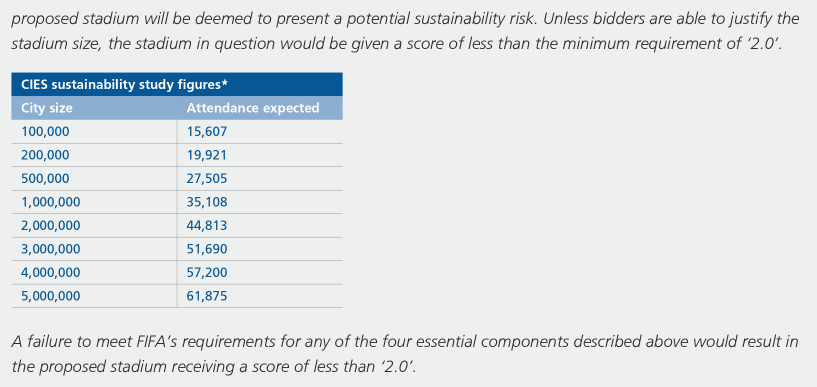 So a million-man confederacy must staff and clean and maintain a 35-thousand seater stadium and so on. This is an example of how small population-groups run small humble facilities, big groups run big facilities. Same with small local libraries versus big libraries, etc. * **Groups of tens of millions of people** – Now we are talking about the world's major ethnolinguistic groups. There are about 150-200 such in the world. Each such federation sends a team to the World Cup and the Olympics. Korea, Italy, France, Afghanistan, Australia, Taiwan, 'the Norsemen' as a whole, 'the Celts' as a whole, the Fula, Yoruba, Igbo, Amhara, Zulu. The Tokyo Metropolitan Area has a population of 41 million in Terra; in this world it's less (the world is less urbanised) but still around 27 million. The major cultural zones of North America, e.g. the Plains Indians, each form confederacies of a few tens of millions – 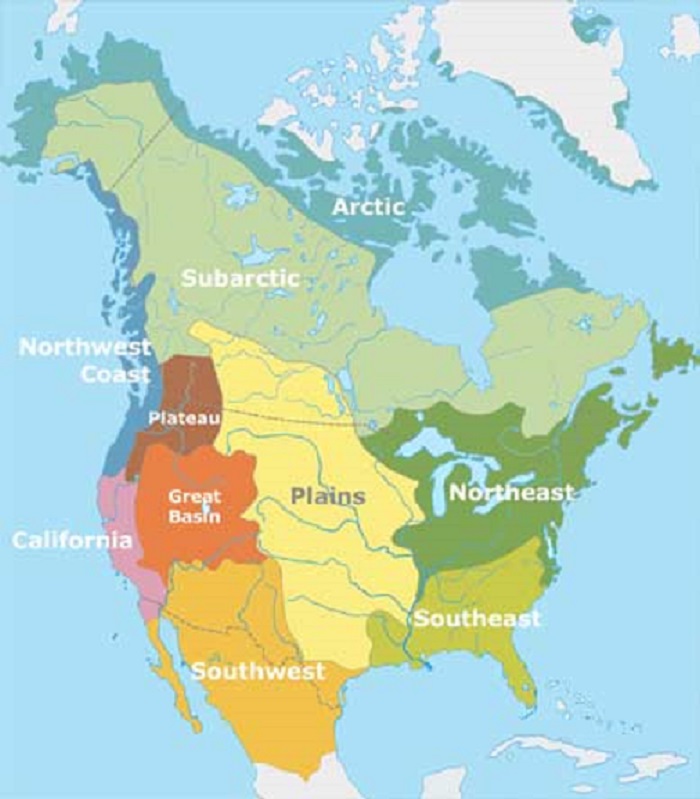 **Groups of near a billion people** – These might run something as ambitious as a space program. Here are the main ones (though see below about fluidity) – * Black Africa * All the Arabs, Turks, and Semites together * Pan-American * The white race * Hindu South Asia plus bits of West Asia * Buddhist East Asia plus bits of Oceania * Austronesia and Australia # Fluidity and fixity The tribes, the ones of about 4000 people, those are fixed. You're not a member of one tribe today and a different one tomorrow. But assemblies can be called to make decisions for any group, it need not be a standing organisation. Examples of fluid group-formation: * A Blackfoot Indian volunteers for an assembly of the Americas one month, and then the next month an assembly of the world's nomads where they discuss issues that affect nomads. * An Inuit from the north of north America volunteers for an assembly of the Americas one month, and then the next month a polar assembly where he meets with Siberians and they discuss doing a deal with a guild that builds [seasonal thermal energy storage](https://en.wikipedia.org/wiki/Seasonal_thermal_energy_storage), a solarpunk technology for places with long cold winters. 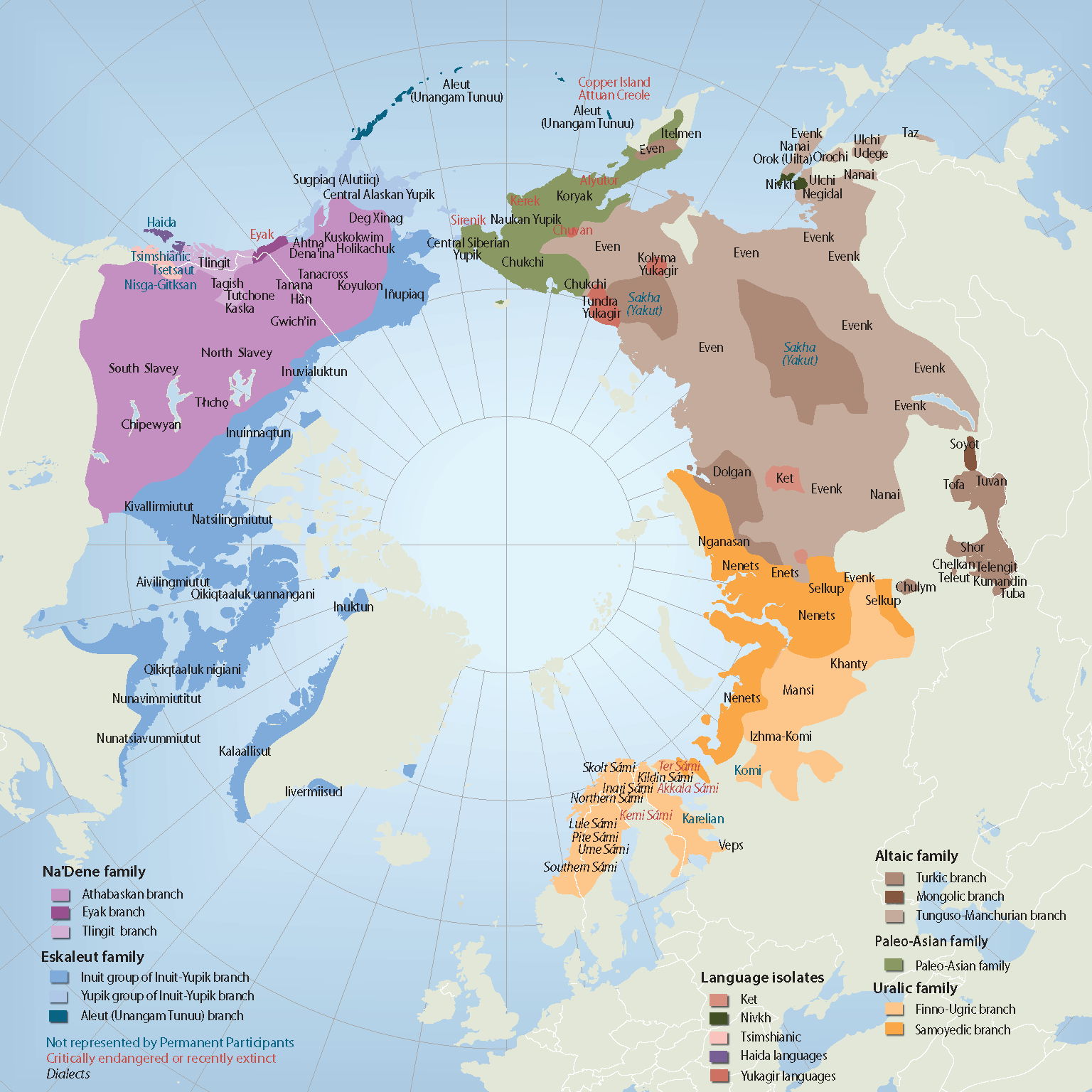 ☝️there's the circumpolar federation – they have things to talk about sometimes☝️ Now that's not to say the edges of the confederacy changes every issue. Rather, it means that the edges don't constrain people from forming whatever assembly they choose. Most the time, assemblies follow the same natural boundaries. For example the 150-200 groups of tens of millions of people mentioned above – those each meet as a matter of regularity. # Assemblies as courts. Different levels of dispute A fight between two neighbours is settled by the tribe. They give their ruling. A fight between two tribes is settled by a larger confederacy. The confederacy must be large enough to impose their ruling. Yet it wouldn't tend to be much bigger: no point involving people on the other side of the world. A Māori *iwi* might have about 80 hapū within it. If two of those are having a fight (maybe about land, maybe about revenge), the assembly of the *iwi* could give a ruling. The land belongs to this hapū not that one. Instead of blood revenge, you must transfer this list of goods to settle the matter. If the hapū rebel against the iwi's judgement, force may be used. If it's a major war, like between Azerbaijan and Armenia, the World Assembly may be the ones to rule. This is analogous to the U.N. sending peacekeepers. # How assemblies work * People volunteer to be members. A volunteer must be seconded, and thirded. Anyone with this becomes a candidate. Candidates' names are put into a random draw. (This excludes totally incompetent people. An objection to anarchism is "we need smart people ruling, not random people!" This system is some check that you must be a passably functional grown-up before you can be on the council.) * Remember how tribes maintain a population-registry? The population under the assembly is counted up from these. Children are included in the count. * 100 names are picked at random. One hundred is a nice number for deliberation, everyone gets speaking-time, not too noisome. * A two-thirds majority can pass a decision. ### Ensuring minority rights in the random draw The population of France is 68,250,000, so 100 representatives are picked at random. 3.36% of Frenchies live in the Lyon Metropolitan Area. In a perfectly fair draw, they'd usually get 3 seats. However, about 19.5% of the time, Lyon will end up with 0 or 1 seats (that's a [binomial calculation](https://stattrek.com/online-calculator/binomial) to figure that out). That's a problem. What if some big decision gets made that affects them? To avoid this, the people of Lyon (i.e. their city assembly), demands formal recognition from the French body. When it gets that recognition, it can overrule any draw that robs it of more than one seat. Any population-group that constitutes 2.5% or more of a larger body has the right to demand this recognition. 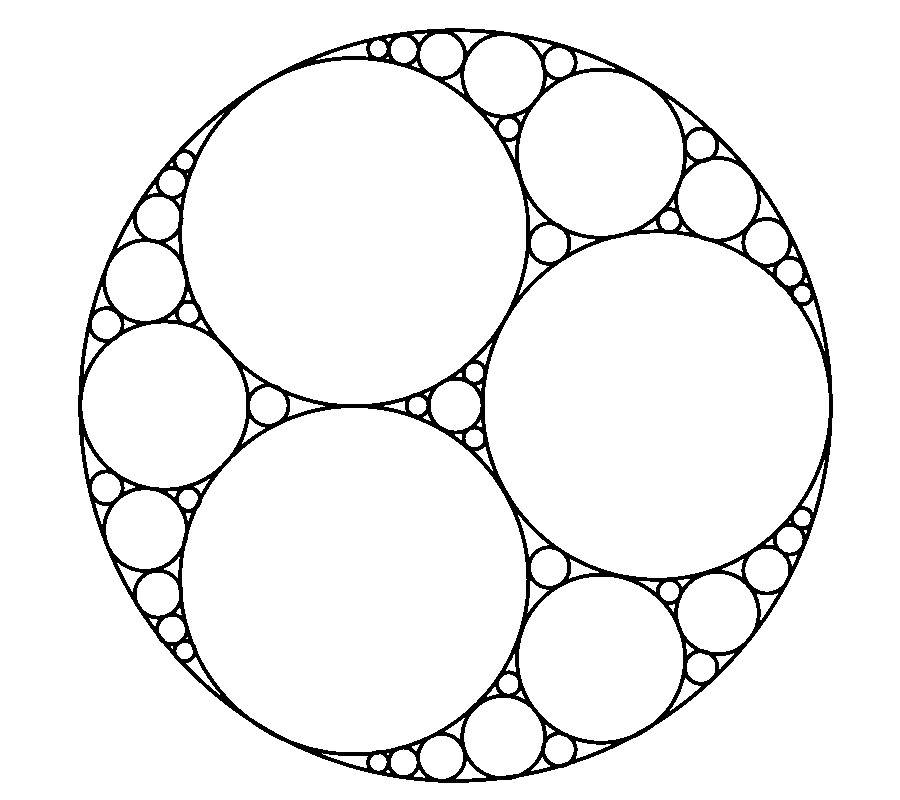 A recognised cell must accept any draw that gives them ([the closest whole number to their proportion]-1). But they reject any draw where their seats are *two* below the median. These rules are restrictive. It'll take about 3000 draws to get one within the bounds of acceptability for all of 30-40 cells. But doing 3000 random draws is something a computer can do in under one second. ## The World Council The World Council meets to decide things like – * Should we allocate resources to eradicate mosquitoes? Let the council hear from various scientific experts about the pros, cons, likelihood of success, amount of required resources. * Should we embark upon building a global vactrain network? * Should we embark upon building a space elevator? * Should we send a global peacekeeping force to stop Armenia and Azerbaijan from fighting? The heading 'How assemblies work' describes how all assemblies work from the tribe to the continent-sized ones. However, for the World Council, there are two tweaks to the rules – * Two meetings run in parallel. So 100 people meet, deliberate, and vote, and so do 100 more people over there. Two equal assemblies, and both must pass the motion. * After the World Council has made its decision, that is then passed down to the continent-level assemblies. Each of these has veto power. Even a very populous Asia should not be able to dictate to Africa. The formal rule is: any assembly speaking for more than 10% of the world's population can veto a decision made by the World Assembly. # We know how the representatives are picked and how they vote, but who can PROPOSE a motion? **Popular vote**: If a proposal goes out on the Internet, and 1% of the population of that unit sign it, the council must consider the proposal. e.g. the world has 8000 million people, so if 80 million people sign a petition saying '*fuck mosquitoes kill em all*', the World Council must consider that. Or for a city of 1,000,000, the initiative would have to be signed by 10,000 people to get in front of the council. # Briefing is important Stanford University run a Deliberative Democracy Lab to explore councils of citizens debating and deciding things. Their system is lame, and I'm about to tell you why. [Here they had Meta (i.e. facebook) get a deliberative assembly together to discuss tech policy](https://cddrl.fsi.stanford.edu/news/results-first-global-deliberative-pollr-announced-stanfords-deliberative-democracy-lab) and it says "A distinguished Advisory Committee vetted the briefing materials for the deliberations and provided many of the experts for the plenary sessions." Here's the problem. You get random assemblies of neutral, fair citizens, put them in a room to deliberate. Good start. *Then you spoonfeed them propaganda materials from facebook inc. upon which to base their decision*, that is undue influence from facebook inc. The councils will need to hear from experts on medical systems, ecology, trains, etc. They deliberate and make informed decisions. Just like the way the assembly is picked and votes is democratic, the system for picking briefing materials must be equally democratic. # Who can brief the council? Same deal: popular vote: * People want an expert/group/intellectual to have the right to give briefing materials, so they vote for him to get part of the briefing. The briefing materials could be written or video. The person/group with the most votes is given a chunk of speaking time (I'm not sure, maybe 2 hours). Then the 2nd-most popular person, then the 3rd. This continues until the speaking time (I'm not sure, maybe 24 hours) is used up. Here, btw, is where a powerful, influential person might gain political sway. The heavy use of sortilege blocks influential politicians from appearing in the system. But if you had an influential public intellectual like Noam Chomsky, everybody would vote for the council to have to listen to his brief. This would often include guilds: like if its a medical issue obviously people want to hear from the medical experts and they medical guild should have no problem getting votes. # One week term-limits lmao A paper describing traditional West African governance says "[In general there were no officeholders; only representatives of groups](https://web.archive.org/web/20120908004311/http://seunfakze.wordpress.com/2012/02/21/stateless-societies-the-igbo-the-fulani-the-somali-by-prof-g-n-ayittey/)" and that is my ideal here. You don't become a representative for a four-year term or a one-year term; you represent your people at ONE meeting. Then the lottery happens again for the next meeting. This prevents ego, keeps things nice and anarchist. ---- This is the most democratic, most anarchist thing I can think of. It's inspired a bit by Council Communism, a bit by Bookchin/Öcalan's democratic confederalism, a bit by traditional tribal systems, a bit by deliberative democracy, a bit by mathematics.
snowflake Now • 100%
Long ago, the world lived in a relative peace. Guided by nature, the people lived off of the land, paying their respects to the gods that assisted them in their daily lives. Then, the Divine arrived. Its light blessed all, allowing for great prosperity in exchange for the Luminae people's devotion. Declaring the unified Holy Kingdom of Auran, the Divine maintained a more physical presence than the gods of nature that came before it. The Divine could be seen, could be talked to, and could be felt. It was by all means their leader, as well as the arbiter of their salvation, as they saw it.
So this, to me, sounds like an allegory of when centralised monotheism replaced anarchic polytheism, am I right? Free pagan tribes replaced by Abrahamic states. I have similar themes in my worldbuilding. (Maybe I'm imposing my interpretation.)
making sure I don't end up with a Fire Emblem 7 kind of situation
what does this mean? duckduckgo did not explain it
Should names be changed?
'Iberia' to me comes with a lot of baggage: I expect it to have Iberian climate and culture. I have seen worldbuilding claim Terran names successfully, but it's rare.
Earth magic is a classification applied to spells that use the caster as the source rather than a god or patron.
There is a debate about this in Terran magic. Some magicians like those who practice Goëtia or hang around becomealivinggod.com use spirits all the time rather than their own power. On the other side of the debate you have people like John Michael Greer: "And further: I've decided that questions involving the evocation of spirits are also permanently off topic here. The point of occultism is to develop your own capacities, not to try to bully or wheedle other beings into doing things for you. I've discussed this in a post on my blog."
What should the Earth/Dark magic be called?
Middle Pillar magic maybe, to evoke the Middle Pillar exercise. Or siddhi magic to evoke the development of siddhis by self-cultivation. Or cultivation to evoke the cultivation genre in Chinese fiction.
In hunter-gatherer bands, in primitive villages, in stateless societies like modern Somalia, people support each other in mutual aid as the norm. Most human and animal life is in support; conflict is the exception. In these stateless societies, when the norm is breached, the natural balance is considered to have been disturbed and it must be rebalanced. That redress is sometimes blood-vengeance, like in the Kanun law of traditional Albania. But it's very often compensation in the form of a transfer of assets. You broke my leg so I'm mad and angry. But then you transferred me three cows, so now I'm not angry any more. And I don't feel you got away with it: I have my dignit of not being a little *removed* who can be victimised with impunity. A variant of this system was in place essentially universally before modern states, and still is in Somalia (look up 'xeer'). Or the tribal areas of Afghanistan are stateless and have Pashtunwali justice. This is justice and it feels like justice. The offender is materially worse off because they offended. The victim is no worse off, they are restored. The offender's life is not unneccessarily ruined, like it is by a criminal record; the payment is the ed of the matter; balance is restored. There are no victimless crimes; you are not punished for smoking weed; you are punished/harmed when you inflict harm on someone. The opposite would be injustice. The characteristics of injustice would be the opposite of all this. If the hatchet is never buried it's injustice. If one person can victimise another with impunity, in an asymmetrical relationship, it's injustice. If the system starts harming people who have not first done harm, it's injustice. The purpose of policing and courts and prisons is to create injustice. It is based on the monopoly of legitimate violence. Cops can be violent with you: you can't be violent with cops. They will make you feel small, aggrieved, victimised, and they will never rebalance the issue. If you try to rebalance it (justice), that's what the system is designed to prevent; justice is the worst outrage against police and courts, the one thing they can never tolerate.
snowflake Now • 100%
blan means foreigner; blacks from the USA are blan
snowflake Now • 100%
a pity it was NOT rent-free
snowflake Now • 100%
A couple of quotes from Kropotkin that might help your researches:
-
"Volumes and volumes have been written about these unions which, under the name of guilds, brotherhoods, friendships and druzhestva, minne, artels in Russia, esnaifs in Servia and Turkey, amkari in Georgia"
-
"Only now, when hundreds of guild statutes have been published and studied, and their relationship to the Roman collegiae, and the earlier unions in Greece and in India,[FOOTNOTE: Very interesting facts relative to the universality of guilds will be found in “Two Thousand Years of Guild Life,” by Rev. J. M. Lambert, Hull, 1891. On the Georgian amkari, see S. Eghiazarov, Gorodskiye Tsekhi ("Organization of Transcaucasian Amkari"), in Memoirs of the Caucasian Geographical Society, xiv. 2, 1891.] is known, can we maintain with full confidence that these brotherhoods were but a further development of the same principles which we saw at work in the gens and the village community."
snowflake Now • 100%
Ok so it's starting to come together:
1st to 6th centuries – the Barbarian-Roman dialectic
The Gallic Wars were a stalemate (rather than a comprehensive Roman win).
Therefore the barbarian mode of production Kropotkin described remained influential in France and Britain. A paper (DOI: 10.1007/s10814-015-9088-x) talks about how commonage is a pre-Roman influence on Roman and post-Roman Britain. The Visigothic Code (Spain, 642AD) combined Roman and Germanic law, showing that there was a dialectic between those two in that era. Germanic Law means popular assemblies and tribes (i.e. mutual aid groups) and compensatory justice (no cops, no jails). So that Roman-barbarian dialectic existed in Terra, and the Roman aspect led to feudalism. If we tip the Roman-barbarian dialectic to the barbarians, that has knock-on effects.
Because the Roman order doesn't dominate France and Britain, if Emperor Constantine converts to Christianity, it doesn't spread the religion. Gallic France, Anglo-Saxon Britain, etc remain pagan. Polytheistic paganism is a more compatible superstructure for a decentralised mode of production; monotheism is more compatible with worship-the-lord and tribute-the-clergy feudal production.
(I haven't talked about religion much, but the world is pagan rather than Abrahamic in case that wasn't obvious)
Class conflict in 'The Middle Ages'
This is when guilds start to emerge (in both Terran history and the alternate history). Let's look at some classes that exist and their class interests
Good guys for the purposes of our story here:
- Barbarians. People with a vested interest in the barbarian mode-of-production. Huns, "The Teutons, the Celts, the Scandinavians, the Slavonians, and others", the Russian mir. Their class-interest is to avoid enclosure, avoid anyone coming in imposing tax/tribute/surplus-value-extraction from them. The Chechens, the Turkic tribal confederacy, etc.
- Peasants. Their material interest is to keep production as independent as possible. An example is Terran history of where they succeeded is Friesland. Prevent enclosure.
- Craft guilds. Similar class interests to peasants really (the hammer to their sickle): keep production as independent as possible.
Bad guys –
- Aristocracy. They try to extract surplus value from the peasants and craftsmen. Where the post-Roman and feudal order exists, they exist. Where it does not they do not.
- Clergy. Pretty much the same as the aristocracy. They are much weaker in this world, not worth mentioning. (The Church is antagonistic to clans because they want people depending on the Church: "It has been argued that kinship ties were relatively weak in western Europe, perhaps as the result of deliberate policies by the medieval Catholic Church to weaken them")
- Merchant guilds. 'Bad guys' here because they are what became the bourgeoisie. Must smash. Their class-interest is doing things like enclosure
It makes perfect sense why the proto-bourgeois merchants, aristocracy, clergy have antagonistic interests to the barbarians and peasants.
Fitting the class guilds on to the side of the clans and against the merchant guilds is harder, but maybe I can make it work.
First problem with making the class alliance is that guilds don't historically side with clans: "guilds did not develop in the British Isles in the early medieval Celtic lands where kinship ties dominated.... Tine De Moor argues that weakened family ties were a vital precondition for the spectacular growth of guilds". Second reason is that craftsmen could be aligned with, not antagonistic with the proto-bourgeoisie, who could give them funding and markets. This is ameliorated if you remove the profit-motive: if the economy is moneyless, based on mutual aid obligations, the craftsman isn't interested in a bigger market. (The barbarian "blacksmith, who, like the blacksmith of the Indian communities, being a member of the community, is never paid for his work within the community" isn't interested in 'making more sales'.)
A series of wars between these two in the Middle Ages ends in the destruction of the merchant and feudal classes. One cool idea is it becomes a war-on-two-fronts for the emerging feudal and bourgeois system; they have Celts to the West (because Julius Cæsar failed to wipe them out), and to the East they have Turks, Huns, Chechens, the Nomadic Empire. A Celt-Khan vice-grip crushes kings.
The half-feudal-half-free people within what was the Holy Roman Empire – groups like the Old Swiss Confederacy, the Frisian Freedom, and peasant republics like the Republic of the Escartons – saw the writing on the wall and sided with the barbarian confederacy. That is in their interest. Basically all the mediæval people Kropotkin liked allied against all the mediæval people Kropotkin did not like.
Europe's contact with America and Africa in the Age of Sail
Contact is made between the confederated tribes of Europe and the confederated tribes of America. They both have a mode-of-production where they produce locally, rather than extract/exploit. They have no material reason to come into conflict. (In Terra, where they were all about extraction, they did.) You have democratic Europeans (democracies like the folkmoot and þing) meeting democracies like the Haudenosaunee. They start bartering and intermarrying a little. The dominant mode-of-production in Europe isn't exploitative, so instead of committing genocide Europeans start wearing moccasins because moccasins are comfy as fuck let's face it.
Similarly, plenty of cool, chill societies in Africa like the Igbo that are based on mutual aid. "It is therefore obvious from the way societies like the Tiv, the central Igbo, and the Dagaaba were organized that they were well aware of the political structure of the centralized systems, but tried to eliminate them as much as possible.... such ethnic societies as the Tiv and Igbo of Nigeria, the Nuer of Sudan, the Somali, and the Bedouin Arabs throughout North Africa..... In general there were no officeholders; only representatives of groups.". So when Europe and Africa start making more links (in the 1400s), it is European tribal confederacies without an extractive economy, and without a religious imperative to convert/subjugate heathens.
Europe's contact with India and China
Now the above doesn't explain why East Asia would follow the same pattern, but a similar thing happened in Terran history: the treaty of Westphalia established nation-states and later the entire globe was nation-states. Similar here but with tribal confederacies.
The Great Divergence
The guilds want to train apprentices in every newly-contacted country to spread their influence. This serves as a technology-transfer mechanism. Industry is not nationalistic: there is an inter-national transatlantic class of engineers: the guild. It is into that world that the steam engine comes. Technology doesn't give Europe a competitive advantage, because technology gets spread.
snowflake Now • 100%
-
George Unwin, The Gilds and Companies of London – https://archive.org/details/cu31924030086692 – on page 2 and 3 he mentions there were guilds in China and India but he doesn't go into detail
-
There's a book called Crafts and Craftsmen of the Middle East: Fashioning the Individual in the Muslim Mediterranean that you can find on Annas-archive
-
There's a book called The Guilds of Ottoman Jerusalem that you can find on Annas-archive
The solarpunk tribal world is detailed [here](https://hexbear.net/post/536533), [here](https://hexbear.net/post/596720), and [here](https://hexbear.net/post/3167507). I built the world because it's what I wanted to see in the late-20th to early-21st century. But it's weak on the question of how that came to be. So I thought some theory-experts might be able to mutual-aid me 😉 Why did this world come to be? * Economically: A **moneyless** world where [labour is organised by kinship obligations](https://d-place.org/parameters/CARNEIRO_170) and local cultures are self-sufficient for the basics. * Politically: Öcalan-style democratic confederalism: your local *folkmoot* or [veche](https://en.wikipedia.org/wiki/Veche) makes local decisions. They send representatives to the country-level popular assembly, *they* in turn send representatives to the continent-level popular assembly, and they in turn send representatives to the world-level popular assembly which does things like stops wars from escalating. Russian doll democracy. Ok I think I've laid out the question well enough now: **why did the economy become/remain moneyless and clannish, and why did democratic confederalism become powerful?** And how can this be explained in terms of class struggle? Let me know if there's confusion and I'll edit. ---- Now, towards an answer – * Actually a lot of the inspiration for it all came from [Mutual Aid Among the Barbarians](https://www.marxists.org/reference/archive/kropotkin-peter/1902/mutual-aid/ch04.htm), and less so [Mutual Aid in the Mediæval City](https://www.marxists.org/reference/archive/kropotkin-peter/1902/mutual-aid/ch05.htm): clans living together helping each other. Comrade K mentions "The Teutons, the Celts, the Scandinavians, the Slavonians, and others", and the chapter is largely about the Russian *mir*. So should I say they struggled against Roman/feudal systems and won, beating out manoralism that later became enclosure and capitalism? * Another thing I could use: around 1100AD in America, Hiawatha creates the Great Law of Peace and the Iroquois Confederacy with five tribes and later added a 6th.... What if in the alternate history this confederated more and more tribes and became really huge? But that's not historical materialism. * The [first reply](https://hexbear.net/comment/3913295) I ever got said, "I feel like, at first, you need to address a kind of Columbian Exchange"... but what if instead of crossing the Atlantic, they cross the Pacific?? So it's an exchange between say Chinese societies and ones like the Tlingit. * I have lots of other little historical tidbits that could force to the tribal side of the dialectic: Pashtun with their jirga assemblies, [Chechens as free and equal as wolves](https://en.wikipedia.org/wiki/Chechens), the stateless Igbo, and many others.
snowflake Now • 100%
Thanks for reading! Hope you enjoyed the post!
What should I ask my contact in the multiverse about next? Preferably don't focus on the negative.
Next post be about –
- The three moneyless economic mechanisms: mutual aid, contract, and n-sided computerised barter.
- Maritime. The world has many traditional seafaring cultures.
- Some particular region? You choose. (e.g Māori New Zealand, the Arctic cultures, North America
- Solarpunk householding: heating fuel, storage cellars, composting toilets, community gardens
- The formal political structures. The equivalent of the U.N.
- Legal systems and dispute-resolution. Law without lawyers, cops, or prisons. What happens to murderers and thieves? I've researched the history/anthropology of this a lot.
Most of the cultures in the non-colonial solarpunk universe – written about [here](https://hexbear.net/post/536533), [here](https://hexbear.net/post/596720), and [here](https://hexbear.net/post/3167507) – are also in your crappy universe. The Merina, the Marra, the Māori are all there – but with more dignity, able to look anyone in the eye as an economic and cultural equal. Yet technology has also created newer cultures not seen on Terra. These new groups couldn't but follow the only pattern they know: living in mutual aid groups self-sufficiently within the ecological limits. One such neo-tribe is the Cloud Nomads. Sky Truckers. They emulate the traditional nomadic groups that surround them, but with the new addition of solar-powered airships.  Their ships are solar-powered, taking advantage of the higher solar irradiation found at high altitudes. [The typical ship is similar in size to the LCAT60T airship in your universe](https://www.flying-whales.com/en/the-lca60t). That means is has about 60 metric tonnes of lifting power. About 65% of this is for hauling cargo. The rest? That's home. Your home in the clouds. An airship might be home to about 22 people: their bedroom, bathroom, shared kitchen all lightly lifted by a helium-hydrogen mix.  Everything must be light. We love balsa wood. Some furniture is made using tensioned bits of fabric and rope. Light and airy. As a crew member, you are allowed 1000kg (less on some ships) for everything: that's your bed, your water ration, your body, everything. Better bring an e-reader.  We like silk, it's is a part of our lifestyle. From the year 2031 onwards, we start to use a lot of spider silk the biopunk guild has learned how to produce. We use it for clothing and rigging, and in the construction of our ships. [Spiders are creatures of the sky](https://thefactsource.com/can-spiders-fly-they-are-found-3-miles-above-ground). 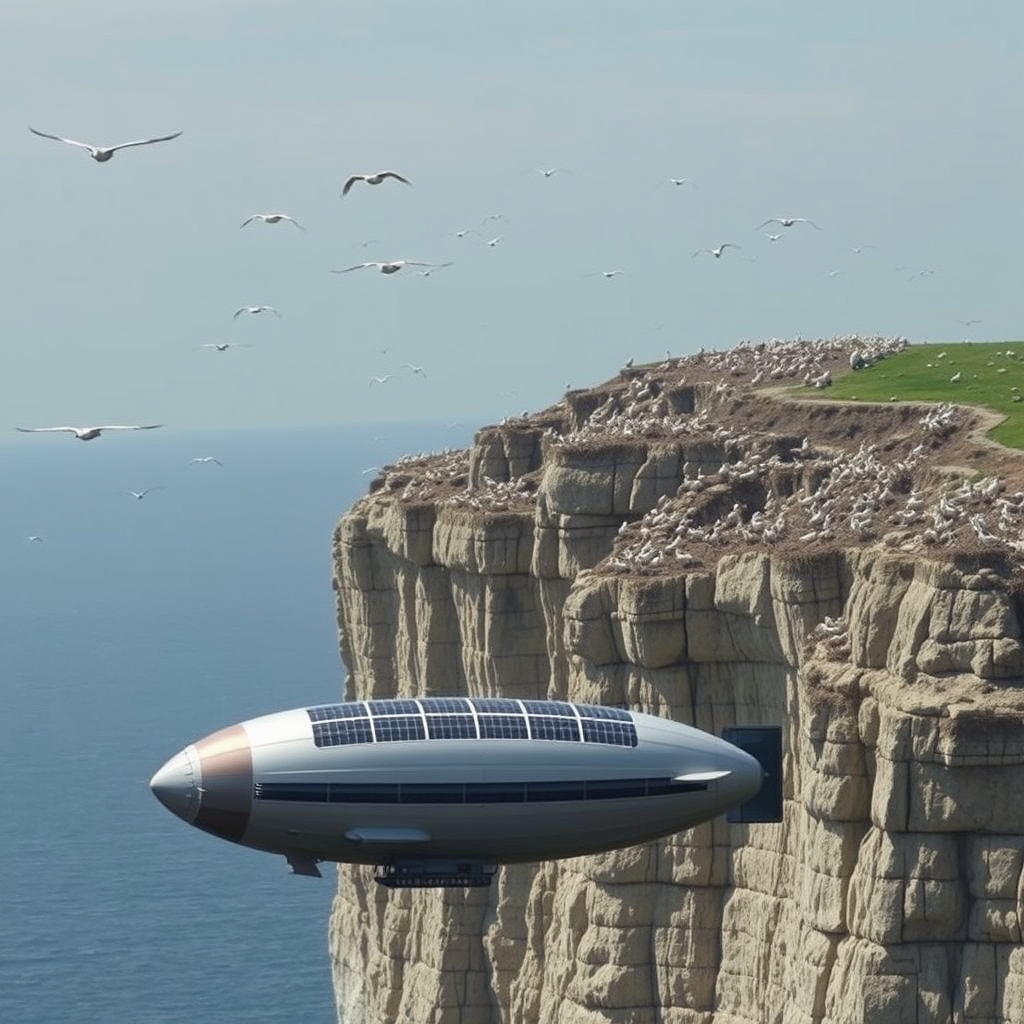 Karl Marx said: *"Trading nations, properly so called, exist in the ancient world only in its interstices, like the gods of Epicurus in the Intermundia, or like Jews in the pores of Polish society."* This world doesn't depend on trade much, yet there is some. Sky Truckers play an important rôle in that trade: bringing goods to spots that aren't easily reached by sea or other means. Other cultures are nearly totally self-sufficient. The Sky Truckers a little less so, they are Marx's intersticial tribe. They are self-sufficient for energy and water, but only half so for food. Cloudmen depend on landlubbers for some food, heavy industry, and of course for their ships to be built. Yet they harvest the food of the sky as much as they can: it would be unthinkable to not feed yourself. Some cultures live by a sacred river that gives them life. The cultures of the Sahara manage their [qanat](https://en.wikipedia.org/wiki/Qanat) through the generations. Skymen have no rivers or wells: they live on clouds. Their ships can unfurl [a mesh net](https://www.youtube.com/watch?v=G4GHGBov15U) like the wings of some immense mechanical bat, and fly through a cloud, filling its tanks with the purest of water. (These tanks are only big enough to hold a few days' water: lightness is always on their mind.)  Eat the sky. [Ancient Greeks ate](https://en.wikipedia.org/wiki/Ancient_Greek_cuisine) lots of species of birds, including mallards, pigeons, blackbirds, larks, sparrows, and cranes. You idiots hunted the [passenger pigeon](https://en.wikipedia.org/wiki/Passenger_pigeon) to extinction but our world did not. They're a reliable food source when our wanderings take us to North America. We go to Africa in June-August and participate in the [quelea hunt](https://en.wikipedia.org/wiki/Red-billed_quelea) with nets deployed from our ships. For small birds, the trick is to remove the head and feet and then cook 'em whole; you can eat the bones 'n' all: just crunch it down! The stewing softens those small bones anyway. There's also [edible pollens](https://northernwoodlands.org/knots_and_bolts/edible-cattail-pollen) in the air, and technology in later eras allowed these to be sucked up efficiently. A high pollen count is 10g per m³ which is really quite a lot of food if you think about it. This [PDF](https://web.archive.org/web/20140602090548/http://westrocketry.com/sli2008/PLAR_MadisonWest2008.pdf) says they "found the most pollen at 600 meters" – up in the realm of the Cloud Nomads.  This culture is the least 'permanent' of all cultures in the solarpunk world. Typically, people follow this lifestyle for a few years in their 20s and then go home. It is an exciting life because we travel to festivals bringing equipment in and out, travel to disaster zones delivering emergency aid. We are young, able-bodied people, good with knots and rigging, good with our hands.  The gliders in the cargo deck become lifeboats in the worst-case scenario, but normally they're used on hunting trips. I love to take my glider out from the bottom deck and hunt big game high in the sky. [The Southern screamer is an "excellent flier and soarer"](https://en.wikipedia.org/wiki/Southern_screamer) and has as much meat as 1½ chickens. (It is eaten somewhat in your dumb universe too.) The most coveted game is the whooper swan, the Canada Goose. Mallards are also pretty good. [Radar helps us find game.](https://birdcast.info/about/weather-surveillance-radar-and-bird-migration-primer) Eating swans and pigeons might seem weird to you, but it wasn't to the Ancient Greeks and Romans, for example. 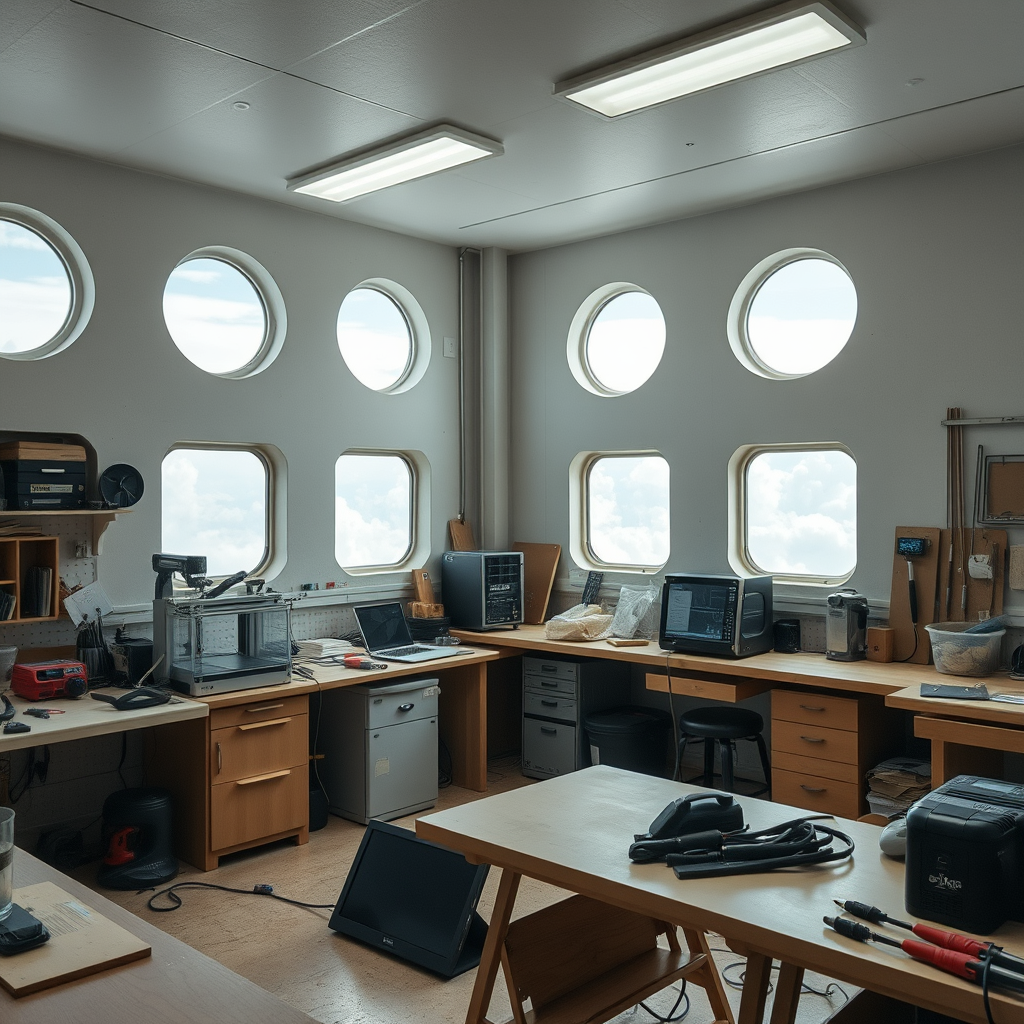 The pattern of nested mutual aid groups is universal. Among Bedawin down below on the ground, several 'bayt' form a 'goum'; among the Yolŋu, several 'Ḻikan' confederate into a 'Bäpurru'. Here in the sky, you and your *shipmates* help each other with cooking and loading/unloading cargo, while your *fleetmates* support you in other ways. A typical fleet has 28 or 29 airships, each averaging 22 souls. You probably don't have a doctor on your airship with you, but your fleet has a doctor. One ship has the shared Fabrication Workshop (pictured above). One ship has the nightclub.  We can cover 2000km in a day when we need to, or more if the wind favours us. A fleet can haul 1000-1100 metric tonnes (28-29 ships with 30-40 tonnes of cargo). When we show up, we can set up a festival in 72 hours, evacuate 4000 people from a disaster area. That is our power, that is our contribution to the wider world. In return, they provide us the things we can't get in the skies. This agreement is formalised at the highest levels of the democratic federal assemblies.  Our storytelling nights are rich with wild stories of UFOs, as well as tales of the roc and Pouākai. One guy in my fleet claims he has seen the 'jellyfish UAP' you might have heard about.
snowflake Now • 100%
this is clearly half-baked and inefficient
No it's great! Lava hardens into rock, so if you shape/form/mould it when it is lava, then it solidifies into the shape you want.
There are lots of ways of making things that rely on the thermoplastic effect: you shape it when it's liquid, then it hardens and you're done.
If the wizard could bend/conjure lava into any shape, he would be a useful man to have on your construction crew.
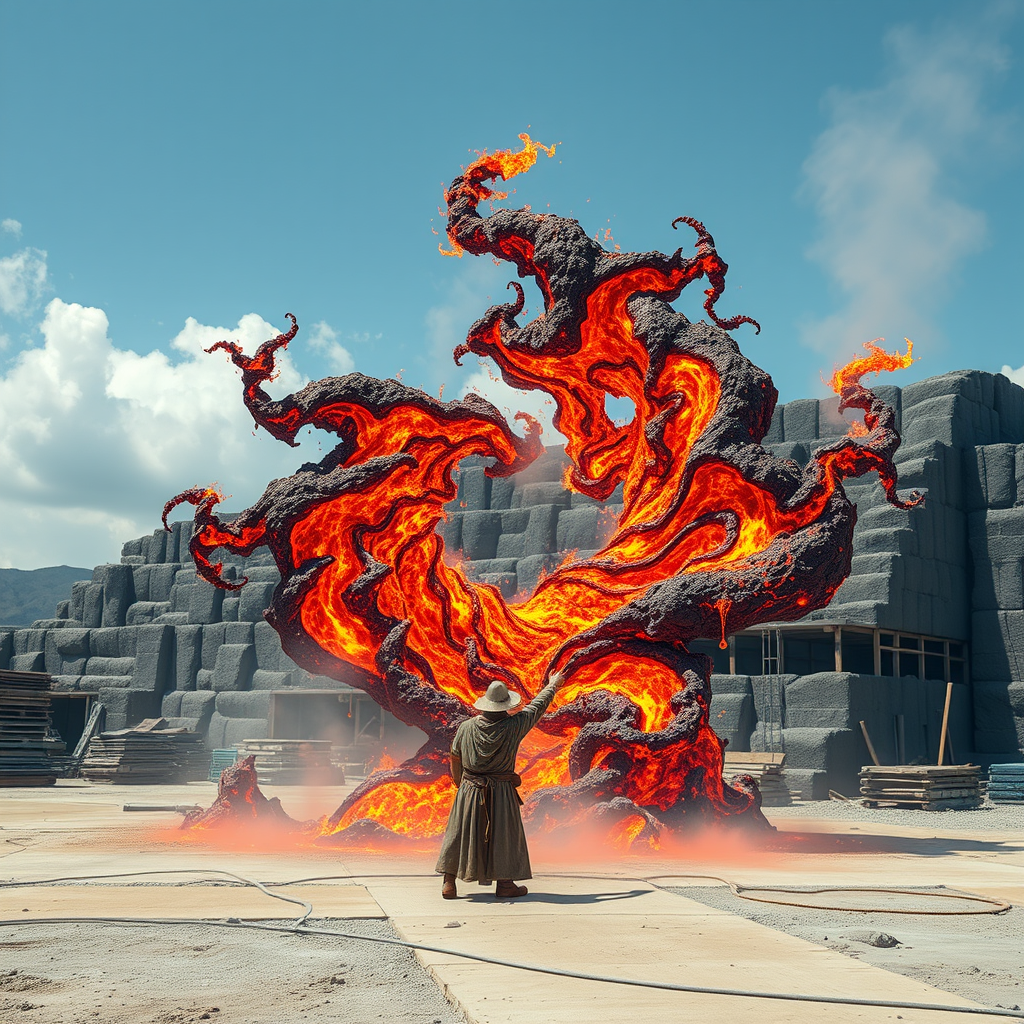
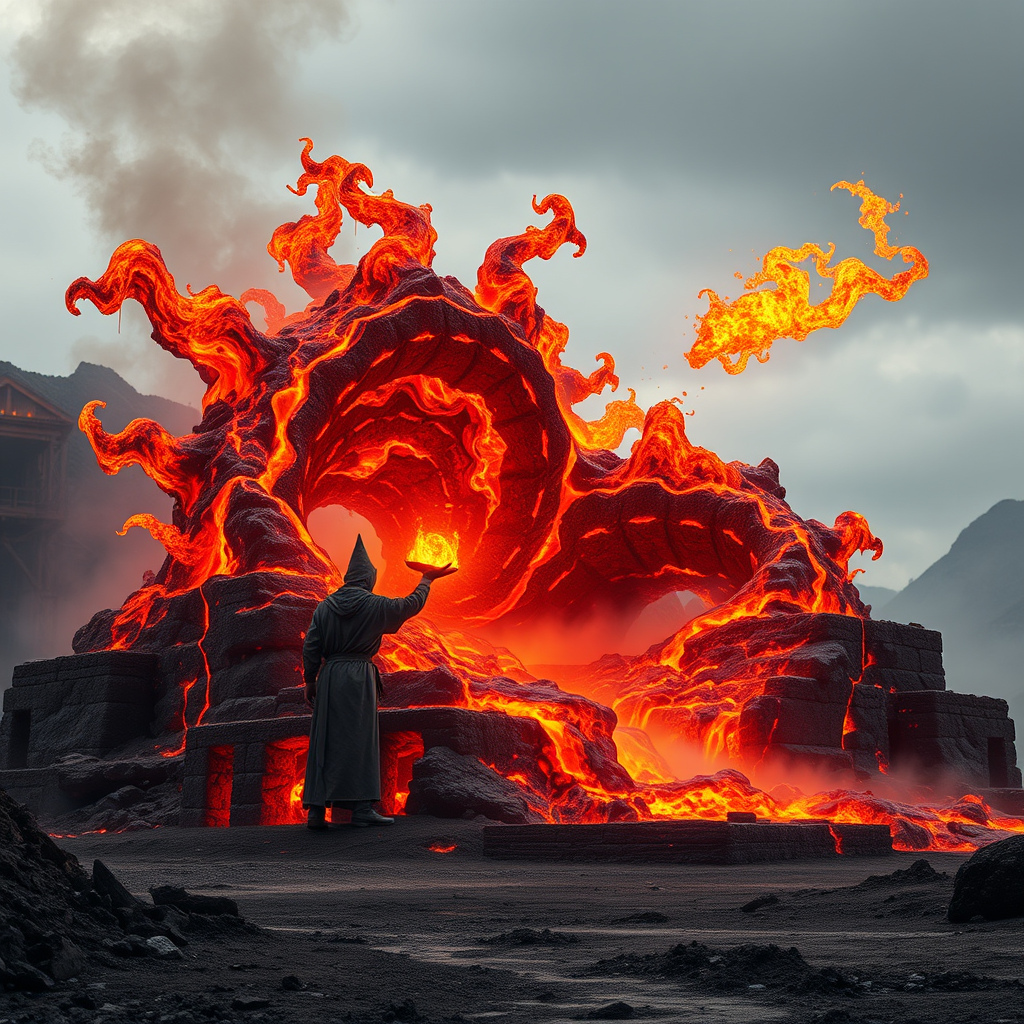
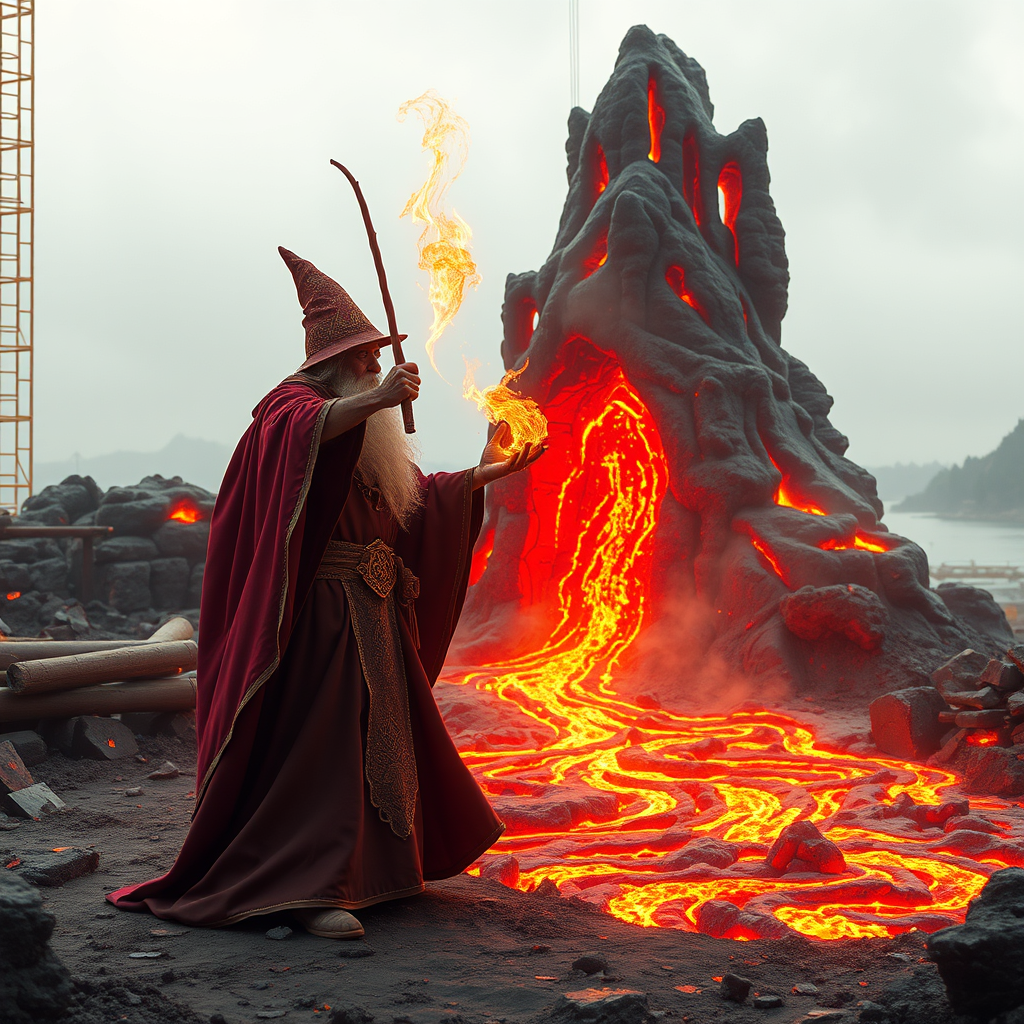
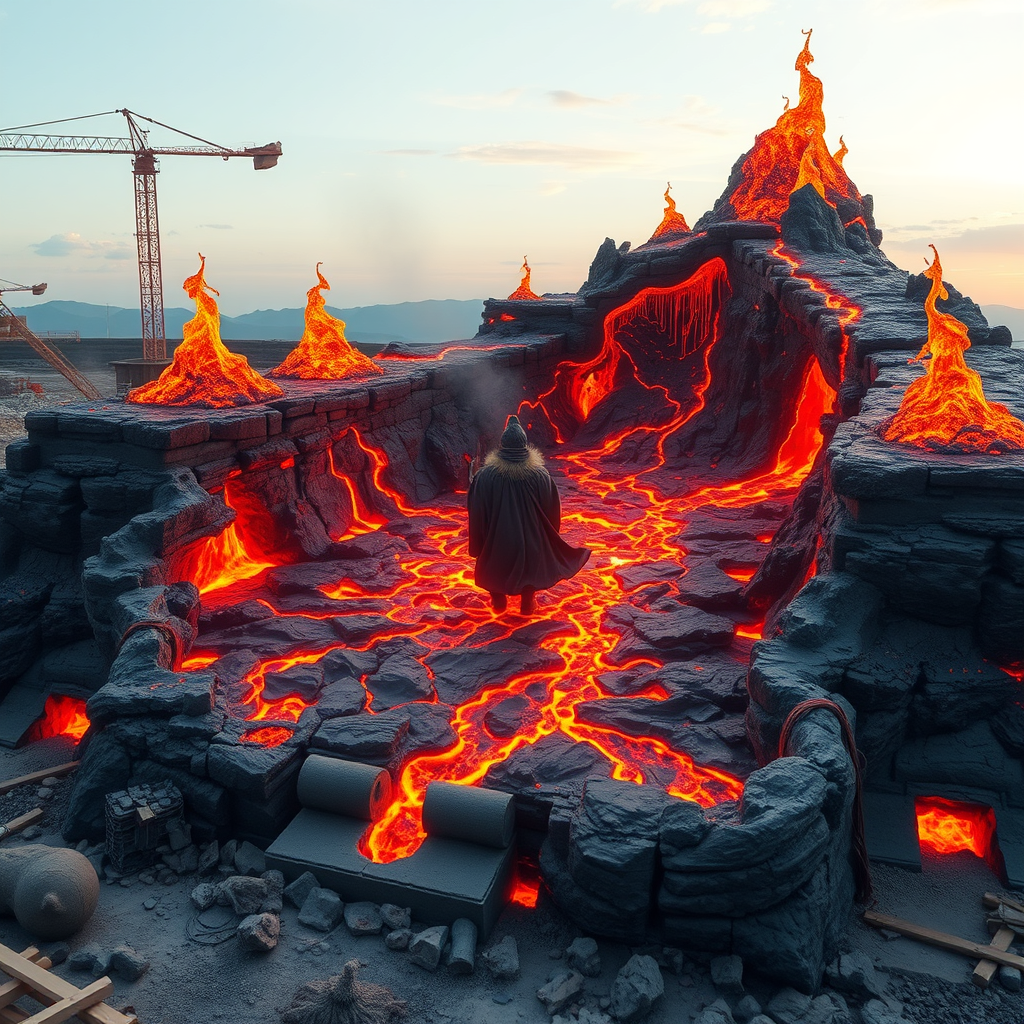

snowflake Now • 100%
This model requires more labour-time – that's the downside. But labour is saved in other places, like the absence of bullshit jobs.... this world just produces less.... That also saves labour. Building 10 cars in a Local Motors way might be as labourious as 100 cars in a big Toyota factory.
Oh and then planned obsolescence:
-
Say you're a capitalist. Your duty is to maximise sales. Is it in your self-interest to make the shirt that wears out in 1 year or 5 years?
-
Say you're a community tailor. Your duty is make sure everyone in your local tribe has sufficient clothing (use-value). Is it in your self-interest to make the shirt that wears out in 1 year or 5 years?
Things are made more durable. This reduces the amount of labour and production to be done overall.
snowflake Now • 100%
Oh my you're asking me about all the bad things in a utopia.
Obviously there was a full-scale industrialization of some sort given the technological parity with our timeline.
That word 'scale'.... scale is a big theme. Yes there was full technological development, but the scale is all different:
Terra: Gigantomania, go from a spinning wheel to "a spinning mill containing 10,000 mule spindles", because the guy profiting from production wants more, bigger.
Solarpunk: Instead of the Industrial Revolution, call it a Tool Revolution. Here the spinning jenny, the spinning mule etc. were invented around the same time as Terra but never went gigantic. People had textiles in 1700 , they just spent long boring hours making them. By 1900 a spinner is, say, 50 times more productive than in 1700. That freed up a lot of time. The goal was not the biggest possible profit; the goal is to provide use-values without excessive burden.
You can rank industries like this:
<------------------------------------------------------->
labour-intensive capital-intensive
small scale medium scale huge scale
skilled workers deskilled workers
local alienated
In this universe, everything is shifted to the left. But not everything is wayyyy on the left. That would be impossible.
Take the most centralised, most capital-intensive industry of all: microchips. In Terra, one chip fab costs $20 billion to build, and operates with almost lights-out manufacturing.
This hackaday article talks about a guy who managed to make microchips at home. A follow-up article said, "there’s a small group of hackers more interested in making the chips themselves. What it takes the big guys a billion-dollar fab to accomplish, these hobbyists are doing with second-hand equipment, chemicals found in roach killers and rust removers, and a lot of determination to do what no DIYer has done before".
I'm not saying their chips were good quality, or those guys will replace factories. But it's a proof-of-concept. Integrated circuits can be made outside of centralised industry, and that means anything can be.
In the solarpunk world, it's midway. Not five plucky hackers, not an Intel factory either. Instead an organised guild of 5,000 engineers develop manufacturing techniques. They train makers to set up workshops in every city.
Food production is hyperlocal. Chip Fabrication is merely local: maybe a chip fab for each 1,000,000 person confederacy. Manufacturing is right-sized, not so downsized you lose the ability to do high-tech.
This model requires more labour-time – that's the downside. But labour is saved in other places, like the absence of bullshit jobs.
To take the word 'scale' in a different sense: yes this world just produces less steel, less energy, fewer cars, would have a lower GDP if you measured it. That's solarpunk. That also saves labour. Building 10 cars in a Local Motors way might be as labourious as 100 cars in a big Toyota factory.
Was there ever serious ecological crisis, locally or intentionally?
Locally yes, e.g. the moa was hunted to extinction. Internationally maybe not.
Also, what do you imagine global population is at? I would guess it's substantially smaller than our timeline, maybe just one or two billion?
It's smaller than our timeline, but more than two billion. There are cities: it's not all hunter-gatherers and farmers.
Did that ever threaten to produce capitalist class dynamics?... I'd also love to hear about what conflicts did and do exist, what political theories developed around them, and how they were or weren't resolved.... Do pre-capitalist class dynamics persist or were those dismantled, and if so, how?
Conflicts: revenge feuds, and raids. Many cultures don't have war but do have raiding. Raids are part of Indo-European cultures going back 7000 years. They're smash-n-grabs that don't escalate to war. As material conditions get better, agricultural yields go up, the incentive for these go down.
Many traditional societies are classless, while some have slavery, some do not. People from no-slavery cultures find others savage and shocking. Not all slavery is morally equivalent; in some cultures it would be forbidden to use corporal punishment on your slave, or to have sex with your slave.
Globally it's really egalitarian, but there is a little inequality here and there. Just like it's overall really decentralised, but with a little centralisation.
snowflake Now • 100%
thank you
cross-posted from: https://hexbear.net/post/3167507 > I've posted about this world before [here](https://hexbear.net/post/536533) and [here](https://hexbear.net/post/596720). > > It's an alternate history. Colonialism never happened in the first place. The world remained tribal, and traditional cultures remain strong. But 21st century tech develops. There is a lack of capitalism and exploitation. > > I downloaded these pics from the multiversal interwebs: > > ---- > > 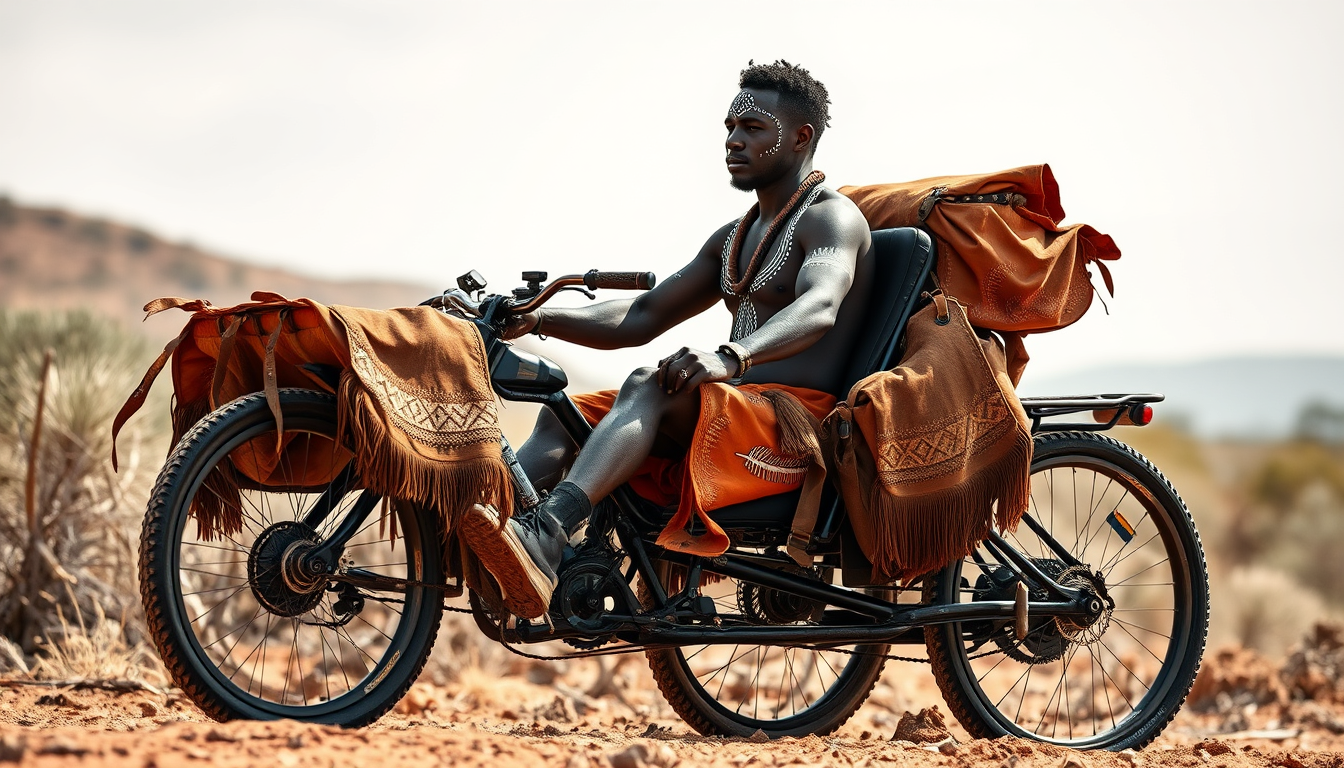 > > Traditionally nomadic cultures – such as this Australian bushman – remain nomadic in the 21st century. But their lives are made easier by technology. Under capitalism, developing technology keeps some people poor but increases the wealth of a few. In the solarpunk, non-colonial world, people use tools like this off-road tricycle to make their traditional lifestyles easier. > > ---- > > 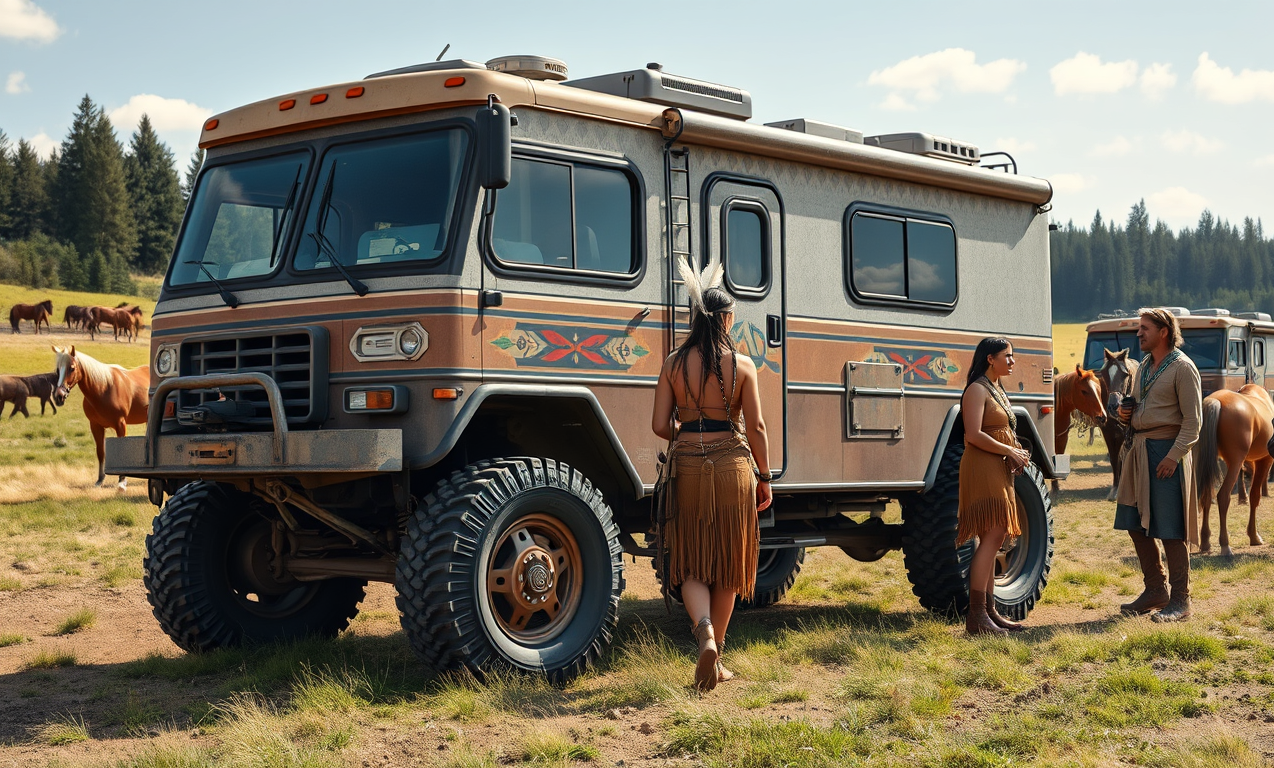 > > North American cultures follow the still-great buffalo herds. They use offroad vehicles that run on gasified biomass they harvest as they go. These vehicles are no faster than a horse. That guy on the right? I guess he's a tourist from a traditional European country; he's visiting his friends. They'll speak the Esperanto-type language to each other. > > ---- > > 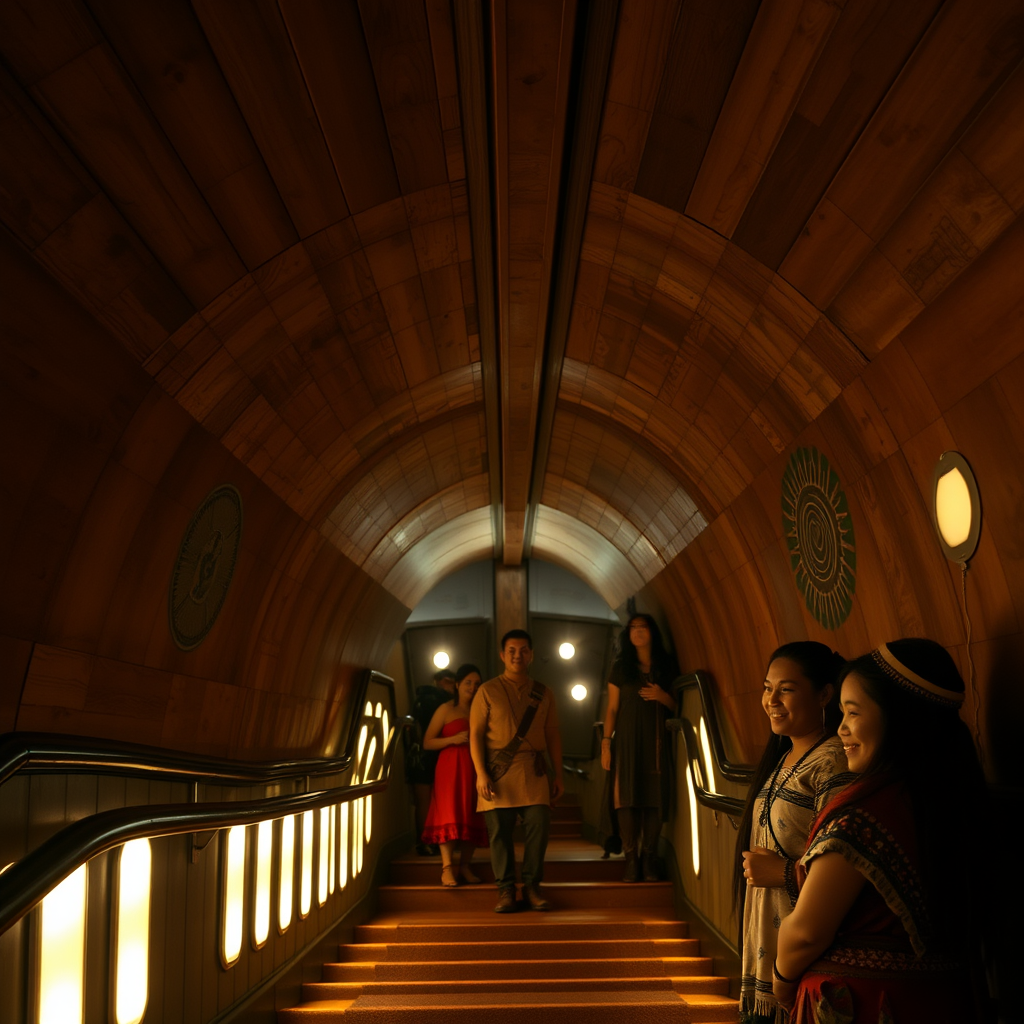 > > This picture was taken in a subway station in Cahokia. > > ---- > > 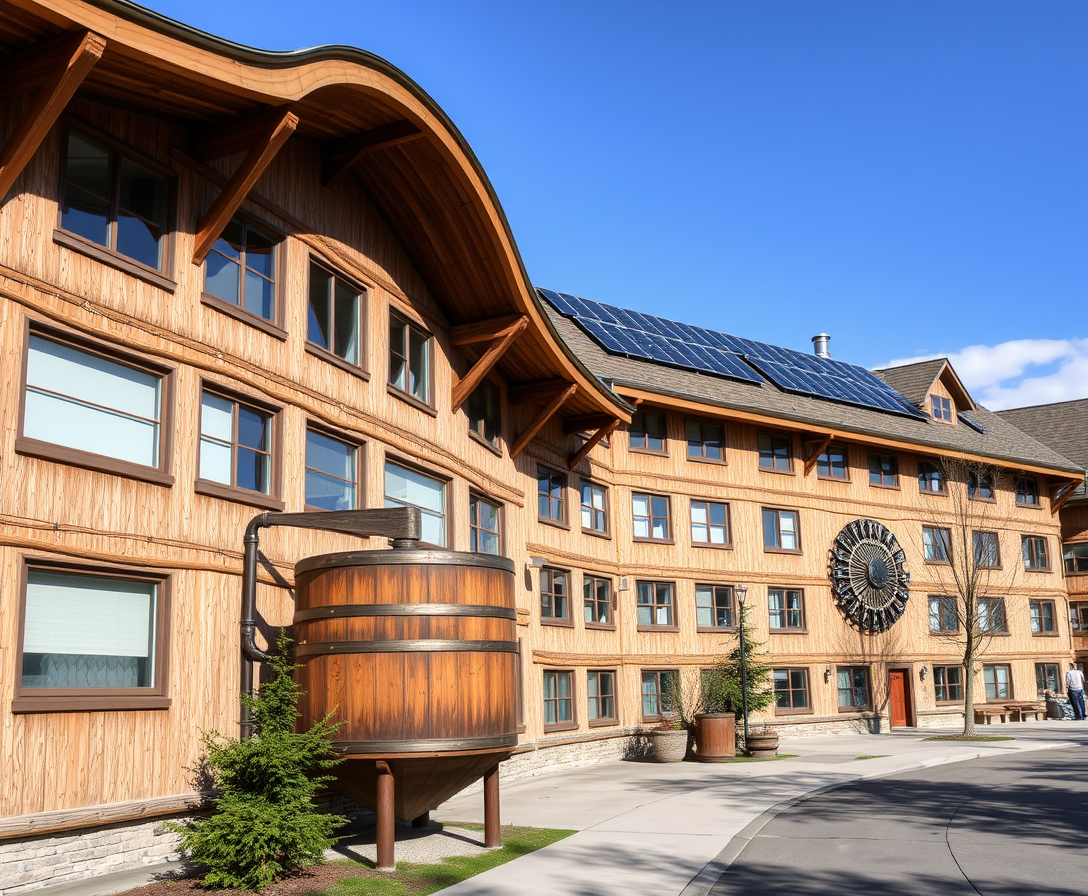 > > This is a typical sight in the [northeast megaregion](https://en.wikipedia.org/wiki/Northeast_megalopolis). This is what the longhouses of the Haudenosaunee people look like in the 21st century. > > ---- > >  > > The fishing cultures of North Europe live within the ecological limits. Some fish are still wild-caught, providing 5-10% of the diet. Others are farmed in [open ocean farms](https://en.wikipedia.org/wiki/Offshore_aquaculture). Members of a large (town-sized or city-sized) tribal confederacy have the customary right to harvest from these waters, and manage the wild stock and the farms as a commons. > > ---- > >  > > My post linked above discusses guilds. One guild that exists, alongside doctors, tailors, and microchip-fabricators, is the Soapwitch guild. They have knowledge of local wildflowers, oils, and that sort of thing. Their job is to provide soap, perfume, toothpaste etc. for free to members of their tribe (instead of Unilever and Colgate doing it for profit). It's their tribe's reciprocal obligation to give them food, shelter, protection, etc.
I've posted about this world before [here](https://hexbear.net/post/536533) and [here](https://hexbear.net/post/596720). It's an alternate history. Colonialism never happened in the first place. The world remained tribal, and traditional cultures remain strong. But 21st century tech develops. There is a lack of capitalism and exploitation. I downloaded these pics from the multiversal interwebs: ----  Traditionally nomadic cultures – such as this Australian bushman – remain nomadic in the 21st century. But their lives are made easier by technology. Under capitalism, developing technology keeps some people poor but increases the wealth of a few. In the solarpunk, non-colonial world, people use tools like this off-road tricycle to make their traditional lifestyles easier. ----  North American cultures follow the still-great buffalo herds. They use offroad vehicles that run on [gasified](https://en.wikipedia.org/wiki/Wood_gas_generator) biomass they harvest as they go. These vehicles are no faster than a horse. That guy on the right? I guess he's a tourist from a traditional European country; he's visiting his friends. They'll speak the Esperanto-type language to each other. ----  This picture was taken in a subway station in Cahokia. ----  This is a typical sight in the [northeast megaregion](https://en.wikipedia.org/wiki/Northeast_megalopolis). This is what the longhouses of the Haudenosaunee people look like in the 21st century. ----  The fishing cultures of North Europe live within the ecological limits. Some fish are still wild-caught, providing 5-10% of the diet. Others are farmed in [open ocean farms](https://en.wikipedia.org/wiki/Offshore_aquaculture). Members of a large (town-sized or city-sized) tribal confederacy have the customary right to harvest from these waters, and manage the wild stock and the farms as a commons. ----  My post linked above discusses guilds. One guild that exists, alongside doctors, tailors, and microchip-fabricators, is the Soapwitch guild. They have knowledge of local wildflowers, oils, and that sort of thing. Their job is to provide soap, perfume, toothpaste etc. for free to members of their tribe (instead of Unilever and Colgate doing it for profit). It's their tribe's reciprocal obligation to give them food, shelter, protection, etc.
The basic unit is the tribe or clan. This is three things: it's your family, it's your neighborhood (they live around you), and it's your economic unit. As an economic unit, each member has duties and gets (non-monetary) payment. Tribal duties include – * Hunt, gather, farm, or fish the food in the traditional way * Help build houses in the traditional way * Help build community halls and other spaces * Maintain and clean those community halls and public spaces * Childcare * Maintain roads, fix potholes The tribe has some skilled specialists, like tailors. Maybe 1 person in 100 is a tailor; it's that person's duty to make sure her 100 kinsfolk have clothes. One specialist is the perfumier/soapmaker who provides everyone with homemade soap, moisturizer, toothpaste, perfume, and that sort of thing. This is another opportunity to add local flavor: [African black soap](https://en.wikipedia.org/wiki/African_black_soap), Palestinian Nabulsi soap, Inuit soap made from seal blubber, etc. and each perfumed with local flowers. Tribal perks/entitlements/wages include – * Food (traditional, local) * A house (vernacular architecture) * Clothes (traditional) * Childcare when you need it * You can hang out in the community hall This isn't luxurious, but you feel taken care of, safe. Just by being born into a family and discharging your duties you thereby earn material security. Lovely. You are home. Tribe’s don’t do very specialized or technical work. Everyone has to pitch in. The division of labor varies from place to place, often based on sex and age. At 0-12 you have no duties, from 12-15 you start being given light duties. Many cultures have traditionally divided men's work and women's work. Some people get the perks without the duties. These include the young, the old, the sick, injured or disabled. (In some cases, and I'm saying this to be non-Utopian, this is nasty, people who are a burden like the elderly are killed. Traditional cultures often had senicide.) Other people exempted from duties include guild-masters (discussed below) and champions in art and sport: imagine your cousin is a world-class violinist who performs on the world stage – you want her practicing, not sweeping the streets. So the tribe exempts her. There is a second economic unit: the guild. No tribe could perform robotic surgery, manufacture 7nm microchips, or build a train. So the medical guild, the microchip guild, the train guild do that. Guilds are not geographically bound, unlike tribes. Guilds conduct their business in the Esperanto-type language. (Anti-anarchists always say, “How could mutual aid groups do very technical work?” Answer: by organizing very technical mutual aid groups.) Everyone is a member of a tribe (you're born into it, how could you not be?). But only some qualify and become guild members: first an apprentice, then a journeyman, then a master. **What do tribes do for guilds?** They provide food, clothing, shelter, and some perks like luxury goods (silk, honey, pearls). And they provide new members, young blood. Also materials: the microchip guild must work out a special contract with the tribe whose ancestral lands are on a cobalt mine. **What do guilds do for tribes?** They are obliged to fix your laptop when it's broken, they maintain the trains, they provide healthcare. Become a guild apprentice and the tribe halves your burden of tribe-work. Become a master and you are totally exempt from tribe-work (it's stupid to expect a busy doctor to also sweep the streets), plus you get a bigger house, a finer grade of food, finer clothes, etc. This is a non-monetary exchange. It's a win-win contract.
I'm indigenous, and my culture is a shadow of its former self. This got me thinking: what sort of a world would it be where indigenous cultures are all thriving everywhere? Then I followed that thought for way too long and built an alternate history world. It would be a world of strong local flavor: everywhere you go, there's vernacular architecture, traditional clothing, local food. Inuit cultures rule the Arctic. Aztecs rule Mesoamerica. I've written an alternate history that I won't bore you with. Imagine there was never a 'Great Divergence' (where the West pulled ahead) but instead various cultures developed at roughly equal speeds, and maybe shared technology more rather than use technology to exploit/oppress. Technical services are on a guild-system. The guilds recruit young people, train them up, and each local community (tribe, if you like) has a deal with the important guilds: you give us your services and we give your members food, board, other privileges. This explains why technology (like the steam engine) spread around the world without being used by one culture to oppress another. A person would have tribe-membership, with its duties and perks, and maybe guild-membership too, with its duties and perks. The Americas and Australia are totally different in this alternate history, because they never got Europeanised. Imagine a developed (21st century) Aztec culture, Cree, Inca etc. with the internet and electricity and so forth. Every culture is in its bloom of glory – it's a world of strong culture. I understand this opens me to charges of exoticism, but counterpoint: my own culture (not gonna doxx myself) is among them. Some worldbuilding is all about physics, some is all about military theory; this is all about anthropology, all the strange and fabulous variety of human religions, fashions, food. There are international elements to counter the extreme localism. In the alternate history, in the age of the steamship and telegram, international culture emerged. (This 'internationalist' phase actually happened in the mundane world as well: the first modern Olympics was in 1896; Esperanto appeared in 1887. It just wasn’t very successful.) Speak your local languages at home: the internet, academia etc. are in the global language. There’s art in local languages (storytelling, etc.) and there's international culture in the international language – the equivalent of The Simpsons or Star Wars that you can joke about when speaking with someone from the other side of the world. Another internationalist element would be cultural exchanges. Imagine you’re a Rus in Russia, and a Himba troupe come to stay in your community for three nights, do dance and storytelling, share your food, flirt. This is a form of diplomacy. Thriving indigenous cultures implies thriving ecosystems, as the two are inseparable. So it’s kind of a solarpunk/environmentalist world. Which fits with the idea of local economies/local cultures.
